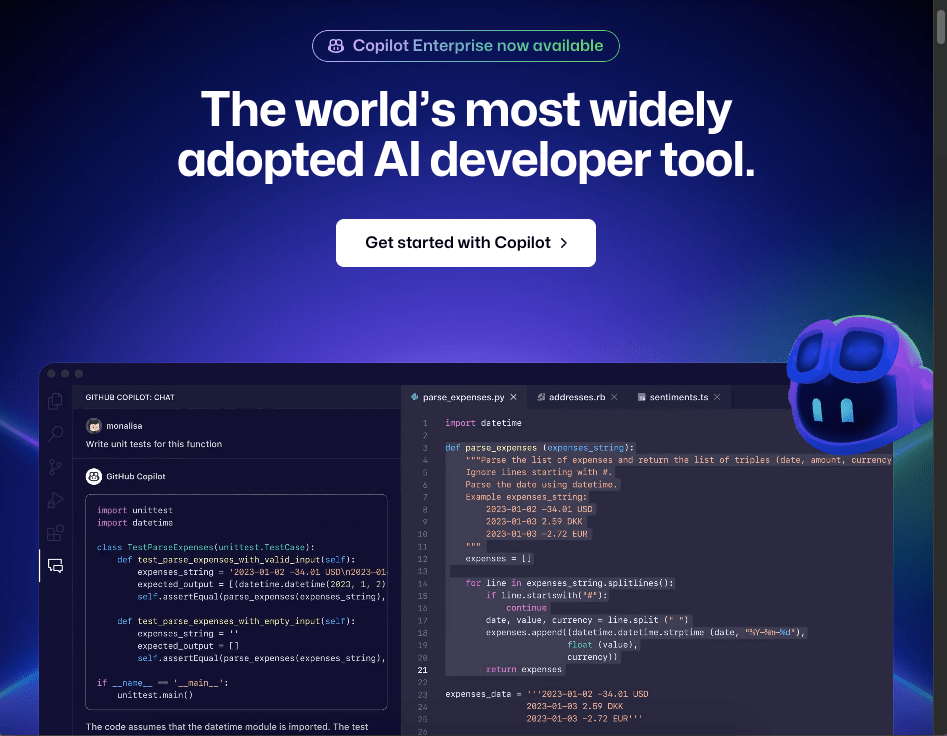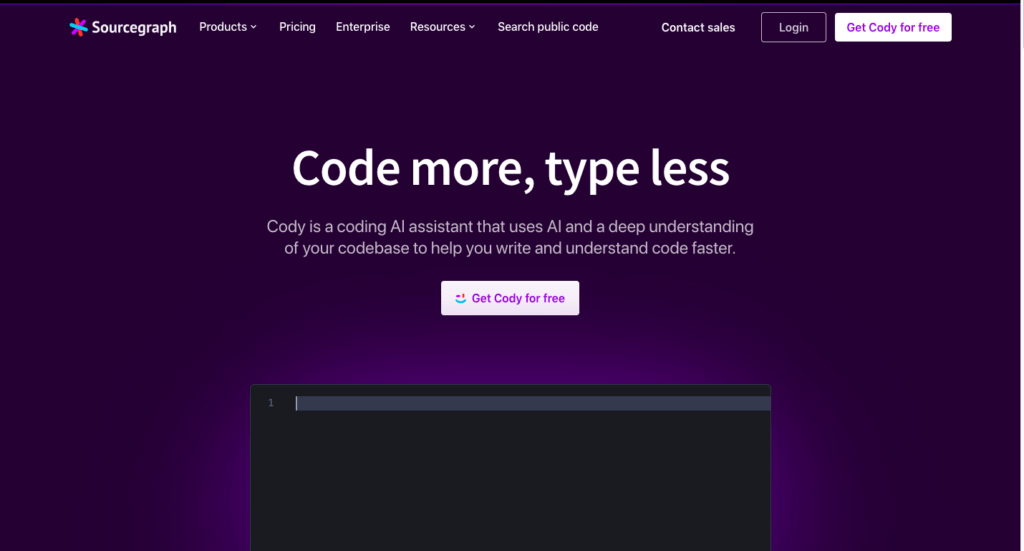Top AI Coding Assistants (Tools) Revolutionizing Development
Artificial Intelligence (AI) is reshaping industries worldwide, and its influence extends deeply into the realm of software development. As the demand continues to surge for intelligent applications, developers are leveraging AI coding assistants/tools to streamline processes, enhance productivity, and unlock new possibilities. In this article, we delve into the top AI coding tools that are at the forefront of this transformative wave.
1. What is an AI Coding Assistant?
An AI coding assistant is a software tool equipped with artificial intelligence capabilities designed to aid developers in various aspects of the coding process. These assistants leverage machine learning algorithms and natural language processing (NLP) techniques to understand code contexts, provide intelligent code suggestions, offer automated code reviews, and even assist in debugging tasks. In essence, they function as digital collaborators, enhancing developers’ capabilities and accelerating the development cycle.
2. Why You Should Consider Using an AI Coding Assistant
In today’s fast-paced development environment, where deadlines are tight and the demand for high-quality code is relentless, incorporating an AI coding assistant into your toolkit can offer a multitude of benefits. Here are several compelling reasons why developers should consider harnessing the power of AI coding assistants:
- Enhanced Productivity: AI coding assistants significantly boost productivity by automating repetitive coding tasks, such as generating boilerplate code, suggesting code completions, and performing code refactoring.
- Code Quality Improvement: By analyzing code patterns and best practices from vast repositories of open-source projects, AI coding assistants can help improve code quality. They offer intelligent suggestions for optimizing code structure, identifying potential bugs or vulnerabilities, and adhering to coding standards. This results in cleaner, more maintainable codebases with fewer errors.
- Faster Learning Curve: For beginners and experienced developers alike, AI coding assistants serve as invaluable learning companions. They provide instant feedback, offer contextual explanations, and suggest alternative coding approaches, helping developers learn new programming languages, frameworks, or techniques more efficiently.
- Collaborative Development: AI coding assistants facilitate collaboration among team members by providing consistent coding guidance and enforcing coding conventions across projects. They help maintain code consistency, reduce friction during code reviews, and ensure that developers adhere to established coding standards and best practices.
- Time and Cost Savings: By automating time-consuming coding tasks and reducing the likelihood of introducing bugs or inefficiencies, AI coding assistants ultimately save time and resources. They help expedite project delivery timelines, minimize debugging efforts, and lower maintenance overhead, resulting in cost savings for development teams and organizations.
3. Top AI Coding Assistant Tools
3.1 GitHub Copilot
GitHub Copilot, powered by OpenAI’s GPT (Generative Pre-trained Transformer) model, revolutionizes coding by providing intelligent code suggestions as developers write. By analyzing millions of lines of code, Copilot offers context-aware completions, accelerating development and reducing errors. OpenAI uses a transformer-based neural network to generate code and entire functions in real time. It directly integrates with popular editors, making it incredibly convenient for developers.
- Supported Languages: Primarily focuses on languages commonly used in software development, including Python, JavaScript, Java, C++, and Go.
- Features: Generates code and entire functions in real-time, suggests different code variations, and integrates with popular editors (VS Code, Neovim).
3.2 TabNine
TabNine uses AI to provide smart code completions in popular code editors like Visual Studio Code and IntelliJ IDEA. With its deep learning model trained on extensive code repositories, TabNine offers contextually relevant suggestions, enhancing coding efficiency. It supports a wide range of languages, from Python and Java to C++, and even offers custom AI models for tailored suggestions.
- Supported Languages: Extensive, including Python, Java, JavaScript, C++, C#, Go, and many more.
- Features: Intelligent code completion, code refactoring, context-aware suggestions and more.
- Integration: Popular IDEs and code editors like VS Code, PyCharm, IntelliJ IDEA, and more.
3.3 Amazon CodeWhisperer
Developed by Amazon Web Services (AWS), CodeWhisperer is a free (for individual use) AI coding assistant that integrates with various IDEs. Amazon CodeWhisperer is a novel AI coding assistant that leverages advanced natural language processing (NLP) algorithms to provide intelligent code recommendations and refactorings. CodeWhisperer is particularly helpful for working with AWS APIs, offering faster development and potentially more secure code. By understanding developer intent and project context, CodeWhisperer assists developers in writing cleaner, more maintainable code.
3.4 Sourcegraph Cody
Cody stands out for its deep understanding of your codebase. This context-aware AI offers superior code completion, suggesting entire functions and even navigating complex configurations. Its “Cody chat” feature lets you ask natural language questions about your code, making it a valuable asset for understanding unfamiliar projects.
- Supported Languages: Primarily focuses on languages commonly used for backend development, including Java, Python, Go, and JavaScript.
- Features: Deep codebase understanding, superior code completion (including functions and configurations), natural language code search (“Cody chat”), and debugging assistance.
- Integration: Primarily browser-based with extensions for some IDEs.
3.5 Replit AI
This suite of AI tools is designed to enhance the coding experience on Replit’s platform. It offers intelligent code completion, code generation, and even code explanation, all powered by AI that leverages a massive dataset of publicly sourced code.
- Supported Languages: Supports various languages commonly used on Replit’s platform, including Python, JavaScript, Java, and many more.
- Features: Intelligent code completion, code generation with explanations, and real-time collaboration features.
- Integration: Primarily functions within the Replit development environment.
3.6 ChatGPT
ChatGPT, developed by OpenAI, stands as a pioneering example of natural language processing (NLP) technology. This cutting-edge AI model, built upon the GPT (Generative Pre-trained Transformer) architecture, empowers developers with the ability to interact with code in a conversational manner. With its deep understanding of human language, ChatGPT assists developers in various tasks, such as generating code snippets, providing syntax suggestions, and offering explanations for complex programming concepts. Moreover, its adaptability across multiple programming languages makes it a versatile companion for developers across different domains.
3.7 AskCodi
This AI assistant simplifies coding by offering intelligent guidance and solutions to your coding roadblocks. AskCodi can generate code in various languages, answer your programming questions in natural language, and provide code suggestions to improve your work.
- Supported Languages: Multiple languages including Python, Java, JavaScript, C++, and C#.
- Features: Generates code in various languages, answers programming questions in natural language, suggests code improvements, and offers debugging assistance.
- Integration: Cloud-based, integrates with some IDEs through browser extensions.
3.8 DeepCode AI Code Assistant
This AI assistant goes beyond simple code completion. It performs static code analysis, identifies potential bugs and security vulnerabilities, and recommends code improvements. This makes it a valuable tool for maintaining code quality.
- Supported Languages: Supports popular languages used in software development, including Python, Java, JavaScript, C++, and C#.
- Features: Static code analysis, identifies potential bugs and security vulnerabilities, recommends code improvements for maintainability and efficiency.
- Integration: Integrates with various IDEs and CI/CD pipelines.
3.9 Visual Studio IntelliCode
Built into Microsoft’s Visual Studio IDE, IntelliCode offers intelligent code completions, code generation, and API recommendations. Its integration with Visual Studio makes it a seamless experience for developers using that platform.
- Supported Languages: Primarily focuses on languages supported by Visual Studio, including C#, C++, Python, JavaScript, and Java.
- Features: Intelligent code completions, code generation, API recommendations, and integration with unit testing frameworks.
- Integration: Built-in functionality within Visual Studio IDE.
4. Conclusion
AI coding assistants are revolutionizing software development, empowering developers to write smarter and more efficient code. These tools leverage AI to enhance productivity and quality throughout the development lifecycle, from intelligent code completions to automated code reviews. By leveraging the power of AI, developers can enhance their productivity, write cleaner code, and build more innovative applications.
These are just a few examples, and the field of AI coding tools is constantly growing. Remember, the best tool for you will depend on your specific needs and preferences. Consider trying a few options to see which helps you code most effectively. Embracing these coding assistants is essential for staying competitive in today’s fast-paced development landscape.






